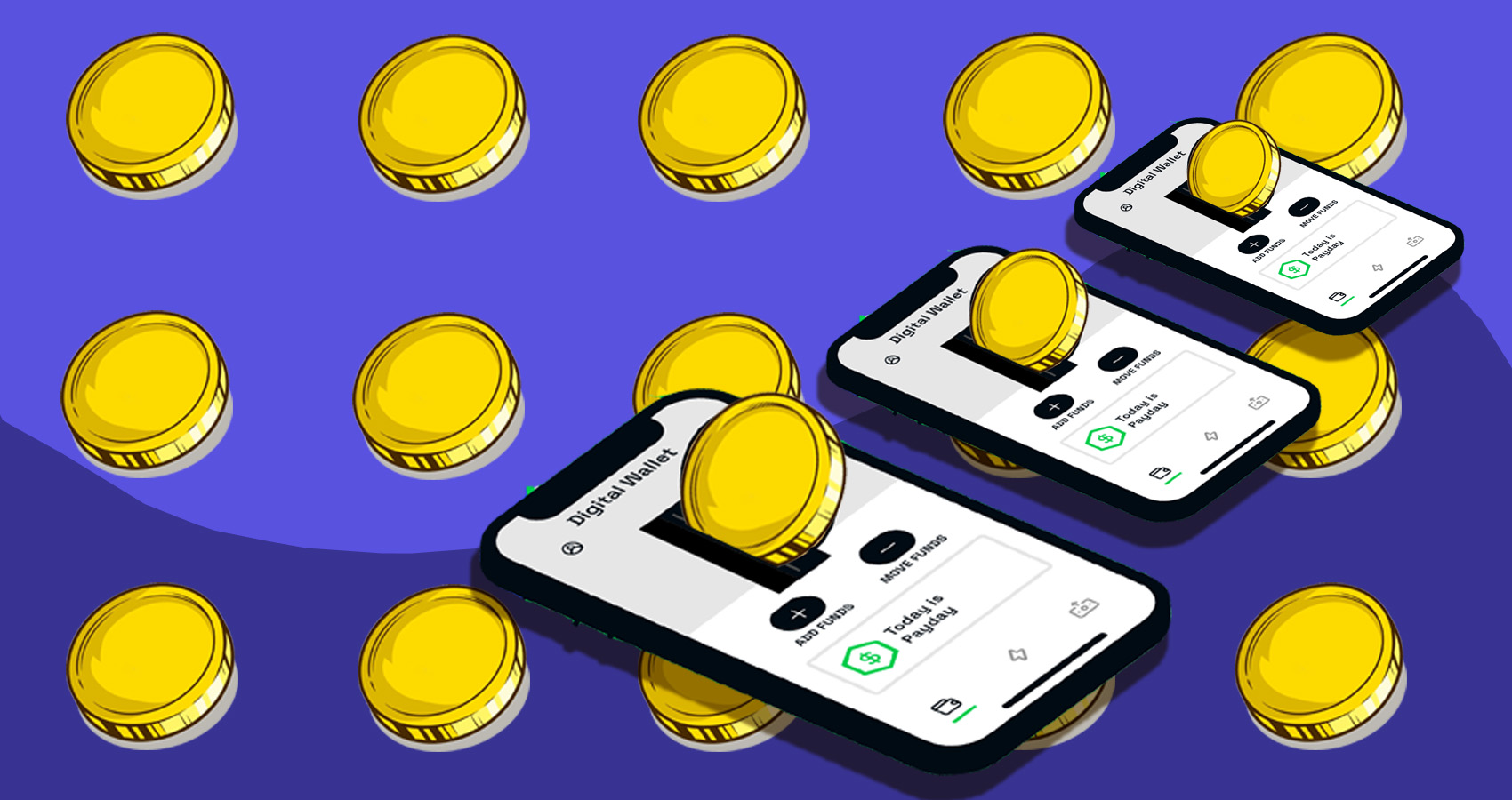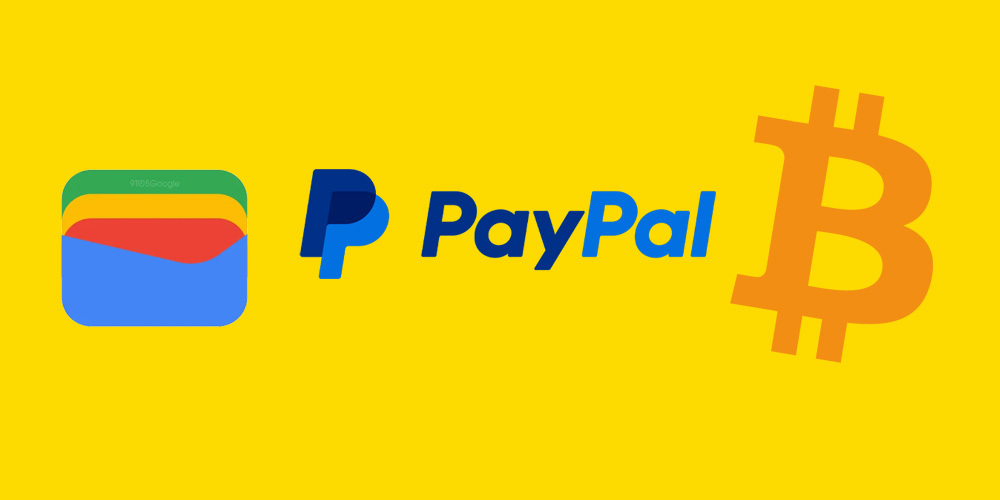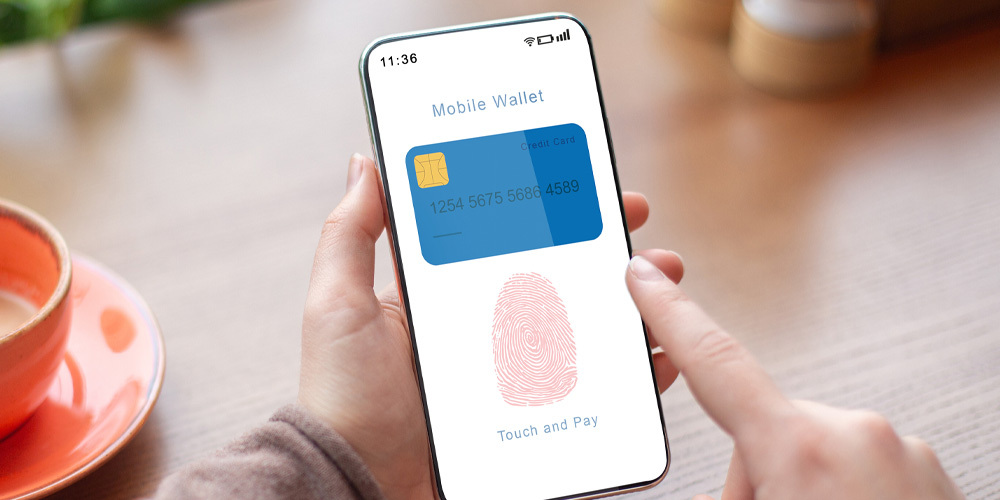
How Do Digital Wallets Work?
Seamless, secure, and cashless payment revolution.
Digital wallets, also known as e-wallets, have rapidly become indispensable tools in today’s digital economy. They allow users to make seamless, cashless transactions, manage their finances, and even invest in digital assets like cryptocurrencies. From traditional payment systems like PayPal to innovative crypto wallet solutions for managing digital currencies, digital wallets are transforming how we handle money. This article explores how digital wallets work, the various types available, and the sophisticated security measures in place to protect users' financial data.
What is a Digital Wallet?
A digital wallet is a software-based system that securely stores users’ payment information, passwords, and other sensitive data. This information can be used to make transactions both online and in physical stores. Digital wallets eliminate the need to carry physical cards and cash, making payments faster, more convenient, and increasingly contactless. There are several types of digital wallets, such as mobile wallets like Apple Pay, online wallets like PayPal, and crypto wallets, each offering unique functionalities tailored to different needs.
How Do Digital Wallets Work?
Digital wallets work by securely storing your financial information and facilitating transactions through various methods, such as Near-Field Communication (NFC) for contactless payments, Quick Response (QR) codes, or secure connections over the internet. Here’s a breakdown of how digital wallets function:
-
Storage of Information: Digital wallets securely store credit card details, debit card information, bank account details, and even digital currencies within an app. This data is encrypted to ensure privacy and to prevent unauthorized access.
-
Authentication: To access the digital wallet, users must authenticate themselves using methods like passwords, biometrics (fingerprint or facial recognition), or two-factor authentication (2FA). This adds a critical layer of security to protect the wallet from unauthorized access.
-
Transaction Processing: When a transaction is initiated, the digital wallet communicates with the merchant’s point-of-sale (POS) system or the online payment gateway to verify the payment method and approve the transaction. For added security, most digital wallets use tokenization, a process that replaces sensitive card details with a unique identifier or token that can only be used for a specific transaction.
-
Completion of Payment: Once the payment is authorized, the transaction is completed, and a confirmation is sent to both the merchant and the customer. The transaction history is then updated within the wallet, allowing users to track their spending effectively.
Types of Digital Wallets

There are several types of digital wallets, each with unique features and use cases:
Mobile Wallets
Mobile wallets like Apple Pay, Google Wallet, and Samsung Pay are designed specifically for smartphones and other mobile devices. They use NFC technology to enable contactless payments at supported terminals. Mobile wallets can store various payment methods, including credit/debit cards and bank accounts, and provide a seamless experience for in-store and online payments.
Online Wallets
Online wallets, such as PayPal, Venmo, and Alipay, are cloud-based services that allow users to store their payment information online. These wallets are often linked to a user's email address or phone number and can be used to send or receive money, make online purchases, or pay bills. Online wallets are widely accepted by e-commerce platforms, making them a popular choice for online shoppers.
Crypto Wallets
A crypto wallet is specifically designed to store and manage digital currencies like Bitcoin, Litecoin, Ethereum, and other cryptocurrencies. Unlike traditional wallets, crypto wallets do not store physical money. Instead, they store private and public keys that enable users to send and receive digital currencies.
Crypto wallets can be classified into two categories: hot wallets (connected to the internet) and cold wallets (offline storage). Hot wallets like MetaMask and Trust Wallet are convenient for daily transactions, while cold wallets like Ledger and Trezor offer enhanced security for long-term storage.
To learn how to create a crypto wallet, you’ll need to follow a few straightforward steps. First, choose the type of wallet that suits your needs—whether it’s a hot wallet for easy access or a cold wallet for better security. Next, visit the official website of your chosen wallet provider, and download the application or purchase the hardware wallet. Follow the installation instructions, and ensure you securely back up your recovery phrase, which is crucial for accessing your wallet if you lose your device. After setting up, you can create your wallet address, which will allow you to send and receive cryptocurrencies. Always remember to enable two-factor authentication (2FA) for added security. Knowing how to create a crypto wallet is essential for safely managing your digital assets.
Security Features in Digital Wallets

Digital wallets are equipped with multiple layers of security to protect users' sensitive information and financial transactions. With rising concerns about cybersecurity threats, wallet providers prioritize safeguarding data through advanced technologies and best practices.
Encryption
Encryption is a fundamental security feature in digital wallets that ensures data privacy and integrity. It converts sensitive information like card numbers, personal identification numbers (PINs), and transaction details into a coded format that can only be decrypted by authorized parties.
-
Symmetric Encryption: Some digital wallets use symmetric encryption, where the same key is used to both encrypt and decrypt the data. While this method is fast, it is generally used in combination with other encryption methods to enhance security.
-
Asymmetric Encryption: Also known as public-key encryption, asymmetric encryption involves two keys: a public key for encryption and a private key for decryption. This method is widely used in digital wallets to protect transactions and user data. For example, crypto wallets heavily rely on asymmetric encryption to secure users' private keys and ensure that only the owner can access their digital assets.
Tokenization
Tokenization is another essential security measure employed by digital wallets to protect sensitive information during transactions. Instead of transmitting actual credit card numbers or bank account details, tokenization replaces this data with a unique, randomly generated token.
-
Transaction-Specific Tokens: The token generated for a transaction is unique and can only be used for that specific purchase. This reduces the risk of data breaches since the token has no value if intercepted by malicious actors.
-
Token Vaults: The original sensitive information is stored securely in a token vault managed by the wallet provider or a third-party payment processor. The token vault is highly secured, making it challenging for cybercriminals to access the original data.
Secure Payment Technologies
Digital wallets use several secure payment technologies to facilitate safe transactions. These technologies ensure that transactions are processed securely and that user data is not exposed to potential risks.
-
Near-Field Communication (NFC): For contactless payments, digital wallets use NFC technology. The payment information is encrypted and transmitted to the merchant's point-of-sale (POS) system when two NFC-enabled devices are in proximity. NFC also supports dynamic encryption, making it difficult for hackers to steal data during the transaction.
-
Dynamic QR Codes: For transactions involving QR codes, digital wallets generate dynamic QR codes that contain transaction-specific details. These QR codes are only valid for a short time and are uniquely tied to the specific transaction, further reducing the risk of fraud.
Cold Storage and Hardware Wallets

For crypto wallets, cold storage refers to storing cryptocurrencies offline, away from internet access. This is an essential security measure to protect digital assets from cyber-attacks.
-
Hardware Wallets: Hardware wallets like Ledger and Trezor provide a secure environment for storing private keys offline. These devices are immune to online threats such as hacking, malware, and phishing attacks.
The Benefits of Using Digital Wallets
Digital wallets provide several advantages:
-
Convenience: Digital wallets offer a fast, easy way to make payments without carrying cash or physical cards.
-
Security: With features like encryption, tokenization, and biometric authentication, digital wallets provide enhanced security over traditional payment methods.
-
Accessibility: They are accessible on smartphones and other devices, enabling users to manage their finances anytime and anywhere.
-
Integration with Other Services: Many digital wallets integrate with other financial services, such as budgeting apps, investment platforms, and even loyalty programs.
Conclusion
Digital wallets are revolutionizing how we handle money, offering convenience and security for managing payments and digital assets. Whether it’s a mobile wallet for daily purchases, an online wallet for e-commerce, or a crypto wallet for digital currencies, these tools are transforming the financial landscape. However, users must be aware of security practices and choose reputable providers to keep their financial data safe. As digital wallets evolve, they will play an increasingly vital role in the future of finance.











